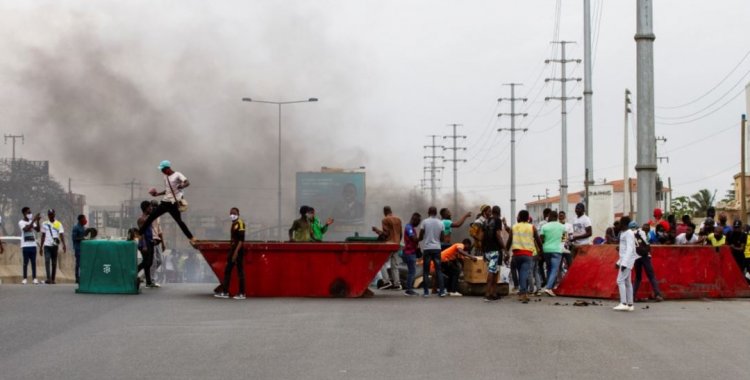In his third year in office, João Lourenço, the successor to José Eduardo dos Santos, who directed Angola's destiny for almost 40 years, experienced disenchantment and distrust.
Despite continuing to raise the flag of the fight against corruption, João Lourenço was unable to prevent breaches from opening and increasing the distance between himself and the Angolans, who lived a year dominated by uncertainties, unemployment, and increasing poverty.
Despite announcements of asset recovery through the courts and, for the first time, previous figures of the regime and their involvement in the looting of public funds, in a series of journalistic plays entitled "The Banquet", which resumed investigations already denounced by the various media, the judicial processes made little progress.
The media trial of José Filomeno "Zenu" dos Santos, son of the former president, has come to an end, but little is known of other cases, such as those of Generals Leopoldino Fragoso do Nascimento "Dino" and Hélder Vieira Dias "Kopelipa", or Manuel Vicente, former vice president and former boss of the oil company Sonangol, to which several of the corruption scandals are associated.
Jurists and analysts have also questioned the apparent selective nature of the targets of justice and the way in which the recovery of assets is being carried out, pointing out the lack of legal framework and the real value of the assets recovered, which can mean, in some cases, heavy burdens for the state.
In economic terms, the government continued to signal the reforms underway, with a view to attracting investment, showing its commitment to continue along the path of much talked about and little achieved economic diversification, but the arrival of the covid-19 pandemic in March forced Angola to put the brakes on and left the country in a social and economic crisis.
Instead of the promised jobs, businesses closed and economic activity plummeted, with many Angolans complaining of having to choose between dying of the virus or of starvation in the face of mandatory confinement and restrictions on circulation.
With growing dissatisfaction, youth protests rose in tone and several marches were held against unemployment and to demand better living conditions and local elections, which were planned for this year, but did not advance because of the pandemic.
The government has tightened control over the media and approved new measures to prevent covid-19, such as banning gatherings with more than five people in the street, hours before a demonstration scheduled for October 28.
Ignoring the ban, demonstrators, mostly young, supported by the main opposition party (UNITA), took to the streets, which triggered a police reaction that prevented the protest and arrested more than 100 people, including journalists.
The demonstrators were summarily tried and released only a week later, in an act that deserved the repudiation of the international community.
This was an indication of what would happen in the demonstration that followed on 11 November, the day marking 45 years of Angola's independence. The date was marked by the death of a young man, Inocêncio de Matos, in circumstances still to be clarified, but which witnesses and family attribute to the police.
The celebration of that day, when João Lourenço inaugurated the Miramar hotel, one of the assets recovered from the Dino, Kopelipa and Manuel Vicente trio companies, was overshadowed by the clamor of young people in the street, forcibly dispersed by gunfire and tear gas, and stained by the blood of Inocêncio de Matos, the student elevated to the category of hero-martyr by young Angolans who demand a change in policies and paradigm.
Pressed by criticisms of police violence and the absence of explanations for the death of Inocêncio de Matos, João Lourenço rehearsed an attempt at reconciliation, calling youth associations and activists for dialogue.
The meeting divided opinions between those who saw in the head of state a genuine will to approach and spirit of tolerance and those who identified signs of arrogance from the also president of the MPLA, a party that has been in power for forty years and needs to prove to a new generation, with no memory of the war, why it should be chosen in 2022 to continue governing Angola.







